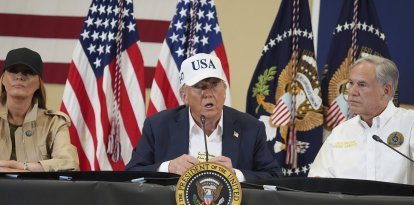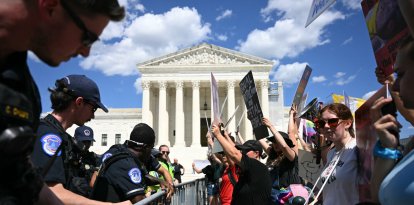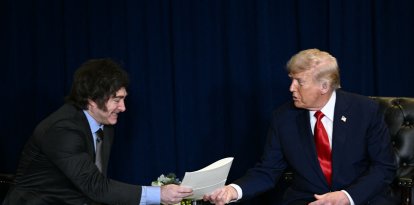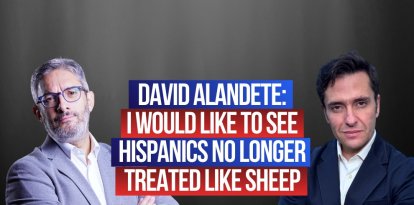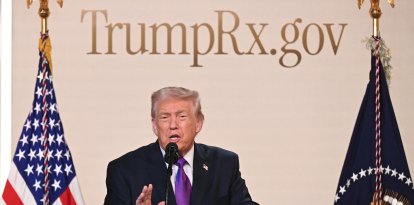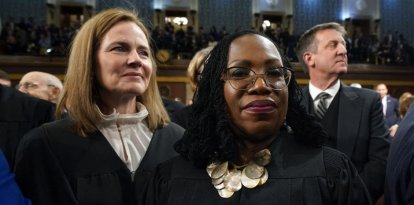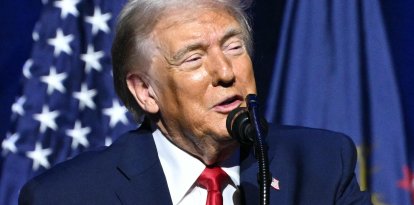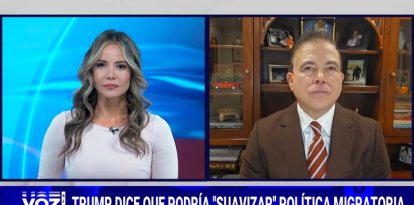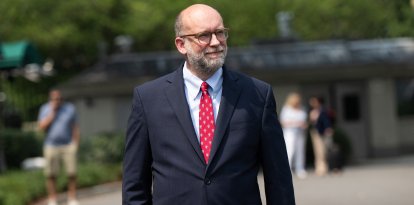Fauci defends his management of the pandemic in front of Congress
The former director of the National Institute of Allergy and Infectious Diseases (NIAID) appeared before the Special Subcommittee on the Coronavirus Pandemic in his first public testimony.

(Cordon Press)
Anthony Fauci defended his management of the pandemic this Monday in his first public testimony before the House of Representatives since he stepped down as director of the National Institute of Allergy and Infectious Diseases (NIAID).
The man who was the face of the government's response to COVID-19 appeared before the bipartisan Special Subcommittee on the Coronavirus Pandemic, which divided along partisan lines to attack and defend the former official.
Democrat Jamie Raskin was one of his most fervent supporters: He accused the committee, and chairman James Comer, of not “doing its job.” Its only objective, he even assured, was to "drag his name through the mud," treating him like a criminal, or worse still, because, he ironically referenced Trump, and claimed that convicted criminals are received with “love and admiration.”
The origins
“I keep an open mind as to what the origin is,” Fauci said, confirming a shift in his stance on the laboratory leak theory. Fauci was one of the main advocates of the natural contagion hypothesis. However, earlier this year, he acknowledged before committee members that the laboratory theory was not a conspiracy.
He claimed that the viruses funded by the NIH could not be precursors of SARS-CoV-2 but did not rule out the possibility that other research performed at the center could have started the pandemic, including the use the humanized mice from the United States.
Fauci denied that the NIH had funded “dangerous” gain-of-function research. Legislator Debbie Lesko asked him “How can you guarantee it if you were not monitoring the investigations in the laboratory? How do you know if you or anyone in your charge went to check?” Fauci responded that he simply knew.
Six feet away
Fauci shifted the blame to the Centers for Disease Control and Prevention (CDC), stating, “The CDC was responsible for those kinds of guidelines to schools. Not me."
However, he did not address why he repeatedly emphasized the importance of maintaining at least six feet of social distance during the pandemic. In an interview with the JAMA Network, he reiterated the necessity of respecting social distancing.
He claimed, as he did at the closed-door hearing, that there was "a controlled trial that compared six feet with three feet with ten feet. There wasn’t a scientific evaluation for it.”
A conflict of interest?
“Why were you trying to protect Dr. Daszak?” Fauci initially denied protecting the president of EcoHealth Alliance, a group that investigated coronaviruses in bats and collaborated with the Wuhan laboratory in China. “Number two,” he continued, "I did not know about the compliance issues,” referring to the close relationship between his senior advisor of two decades, David Morens, and Daszak. According to Fauci's critics, the relationship constituted a conflict of interest that Morens should have disclosed.
Fauci also denied using his personal emails to communicate with Dr. Morens on official matters or any other issues related to his position.
When asked by Rep. Nicole Malliotakis how much he had received in royalties from pharmaceutical companies since the beginning of the pandemic, Fauci said he received nothing. He then said: “In Covid, I think I received $122” for an article he had written 27 years ago. But, he assured, it had nothing to do with COVID-19.
Malliotakis asked him about the recent reports that NIH scientists received $710 million in royalties from drug makers during the COVID-19 pandemic. Who kept that $710 million? "Not me," Fauci said.













